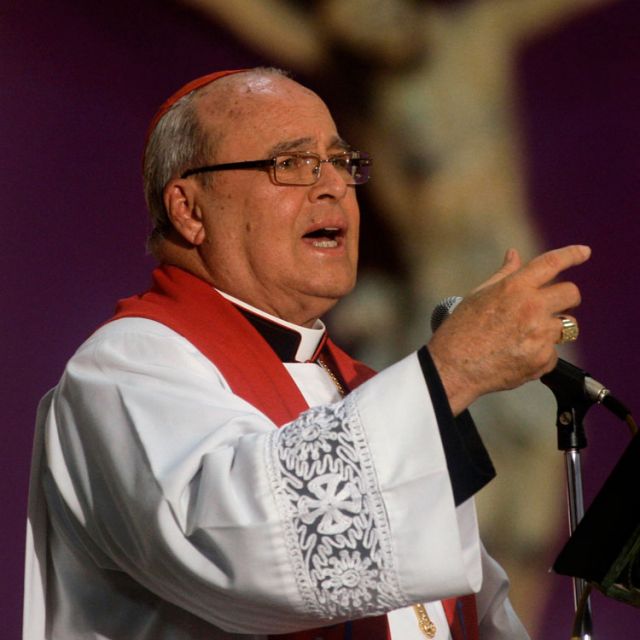"When the church is self-referential, inadvertently, she believes she has her own light," he said in a summary of a speech he gave to the College of Cardinals before the start of the conclave that ended in his election.
When the church ceases to be "the mysterium lunae," that is, to depend on Christ for receiving and reflecting his -- not its own -- light, the church then "gives way to that very serious evil, spiritual worldliness, which according to (Jesuit Cardinal Henri-Marie) De Lubac, is the worst evil that can befall the church," said then-Cardinal Jorge Mario Bergoglio.
The church then "lives to give glory only to one another" and not the rest of the world, he said.
The Vatican newspaper, L'Osservatore Romano, and Vatican Radio published March 27 the future pope's comments, which were in the handwritten outline of the speech he gave during the pre-conclave meetings, called general congregations. The meetings, which ran March 4-11, gave the cardinals a chance to discuss the main challenges facing the church.
Cuban Cardinal Jaime Ortega Alamino of Havana "had been so impressed" by then-Cardinal Bergoglio's speech that he asked for a copy of it, according to Vatican Radio. The radio said Cardinal Ortega received the pope's permission to share the contents of the speech's outline.
The outline said evangelization presupposes that the church does not want to be locked up inside herself, but wants to go "to the peripheries, not only geographically, but also the existential peripheries: the mystery of sin, of pain, of injustice, of ignorance and indifference to religion, of intellectual currents, and of all misery."
"When the church does not come out of herself to evangelize, she becomes self-referential and then gets sick," he wrote, adding a note of reference to St. Luke's Gospel account of Jesus curing the crippled woman on the Sabbath.
In the passage, Jesus is criticized for healing on the Sabbath, the day dedicated to rest. Jesus calls his critics hypocrites, asking why they can interpret the law to allow them to untie and release their animals on the Sabbath and not let a woman be unleashed from the binds of the devil who caused her illness.
The future pope wrote, "The evils that, over time, happen in ecclesial institutions have their root in self-referentiality and a kind of theological narcissism."
"In Revelation, Jesus says that he is at the door and knocks. Obviously, the text refers to his knocking from the outside in order to enter, but I think about the times in which Jesus knocks from within so that we will let him come out," he wrote.
"The self-referential church keeps Jesus Christ within herself and does not let him out," he added.
The pope wrote, "Put simply, there are two images of the church: a church which evangelizes and comes out of herself" by hearing the word of God with reverence and proclaiming it with faith; and "the worldly church, living within herself, of herself, for herself."
"This should shed light on the possible changes and reforms which must be done for the salvation of souls," he wrote.
Then-Cardinal Bergoglio told the College of Cardinals that the next pope "must be a man who, from the contemplation and adoration of Jesus Christ, helps the church to go out to the existential peripheries, that helps her to be the fruitful mother, who gains life from 'the sweet and comforting joy of evangelizing.'"
The College of Cardinals elected Pope Francis, reportedly beyond the two-thirds required, on March 13, on the fifth round of conclave voting.



